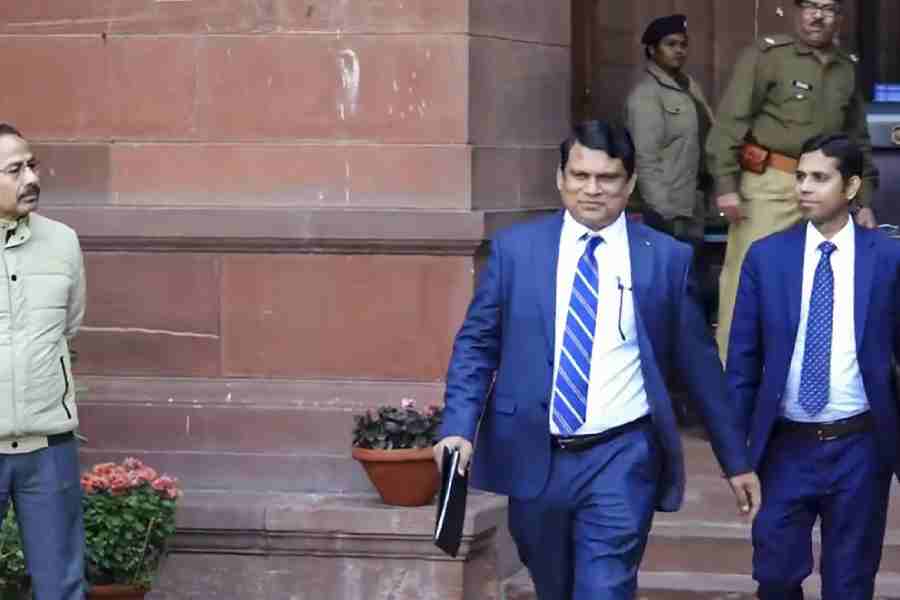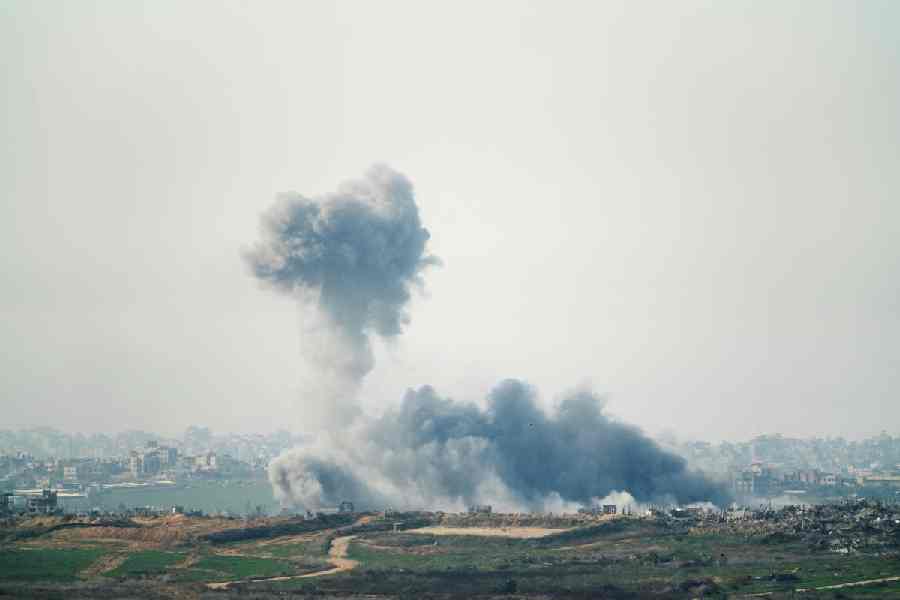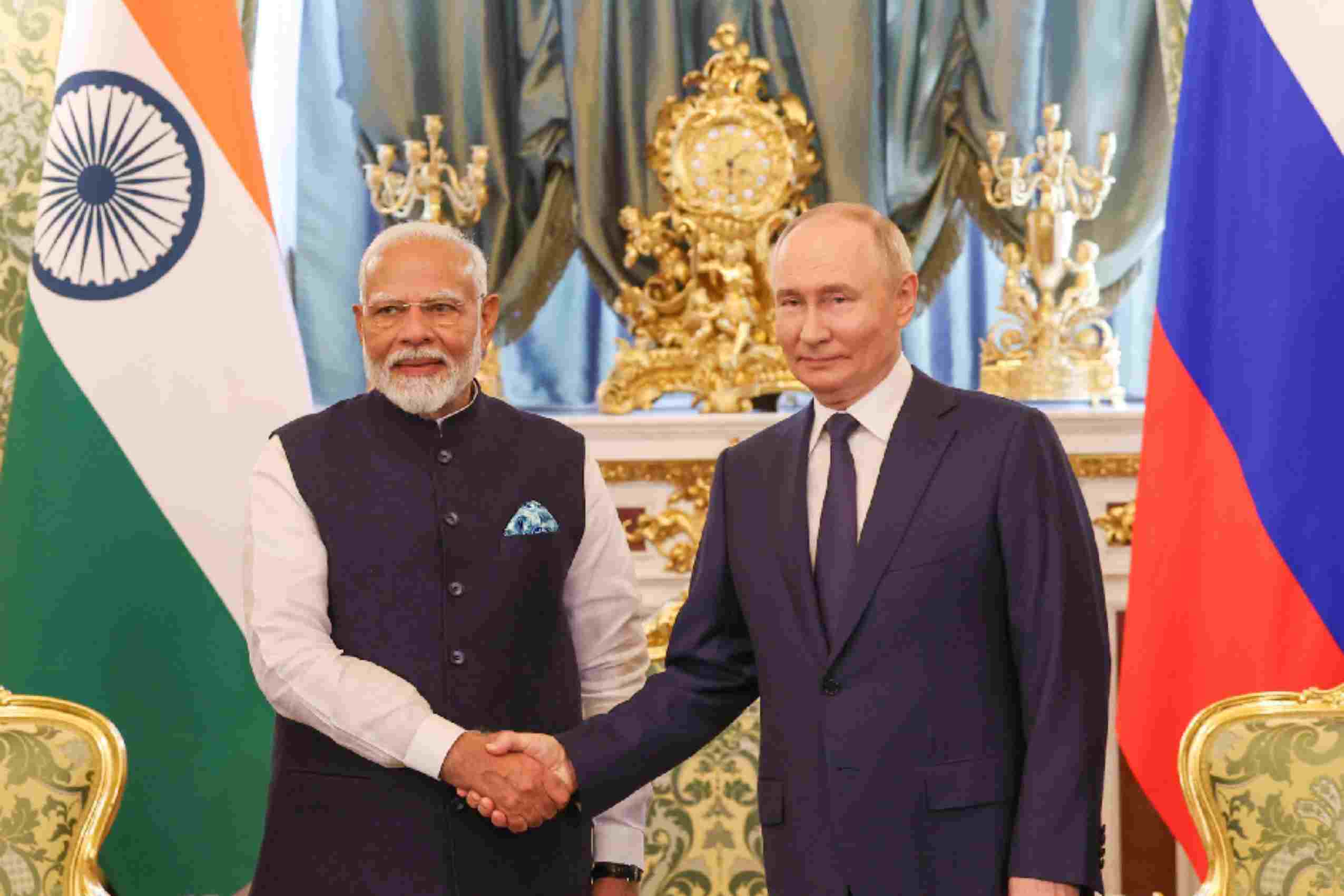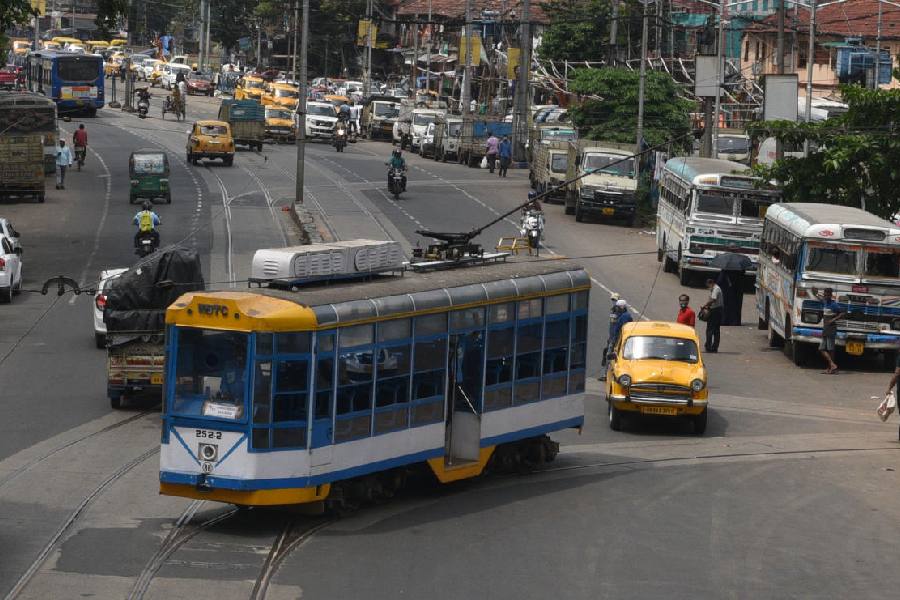General Upendra Dwivedi, the army chief, on Monday described Bangladesh as a “strategic neighbour” and said any animosity would benefit neither country, but the unease in bilateral ties tumbled out within hours with India snubbing Dhaka’s concerns about a border-fencing drive.
“We are neighbours, we have to live together and understand each other. Any kind of animosity is not in each other’s interest,” Dwivedi said in the morning, having been asked about India-Bangladesh relations.
“I’ll take you back to the comment made by the Bangladesh army chief (General Waker-Uz-Zaman) recently that India is strategically important to us and the same is vice versa. Bangladesh is strategically important to us.”
Within hours, however, the strain in the relationship since Sheikh Hasina’s ouster was underlined when the external affairs ministry summoned acting Bangladesh high commissioner Nural Islam and conveyed India’s position on border fencing, the latest thorn in bilateral ties.
A ministry media release said Islam was told that India observed all protocols and agreements between the two governments on security measures at the borders, including fencing.
It was also conveyed to the envoy that India was committed to ensuring a crime-free border through measures like barbed-wire fencing, border lighting, installation of technical devices and cattle fences, the release said. Among cross-border crimes, the release cited smuggling, the movement of criminals and trafficking.
The ministry’s message to the envoy amounted to a rebuff to the Bangladesh foreign ministry’s statement on Sunday expressing its “deep concerns” at the “recent activities of the BSF along the Bangladesh-India border”.
The interim government in Dhaka, headed by Muhammad Yunus, had summoned Indian high commissioner Pranay Verma to the office of foreign secretary Md Jashim Uddin on Sunday. Verma was told the BSF’s “unauthorised attempt” to construct barbed-wire fencing and related operational actions had caused “tensions and disturbances” along the border.
Dhaka’s unhappiness at India’s attempts to fence the border had become clear earlier on Sunday morning when Lt Gen. (retd) Jahangir Alam Chowdhury, home affairs adviser to Yunus, spoke of growing tensions on the border.
After criticising the Hasina government for allowing India to undertake “border activities” that he alleged were contrary to Bangladesh’s interests, Chowdhury said that some of the agreements on border issues would be reviewed.
Since fencing began on Friday around Dahagram-Angarpota — the sole Bangladeshi enclave in India — near the Tin Bigha Corridor in Cooch Behar, Bangladesh has been alleging that it violates international law’s prohibition of any construction within 150 yards of the Zero Line (border).
“From 2010 to 2023, India constructed fences in 160 locations, creating complications. Another 78 spots also face issues and recently, disputes have arisen at five locations, including Chapainawabganj, the Tin Bigha Corridor in Lalmonirhat, Patnitala in Naogaon, Feni, Kushtia and Comilla,” the home affairs adviser was quoted in the Bangladeshi media.
With sound bites from Dhaka blaming New Delhi for the “tension”, India’s external affairs ministry made its stand clear to Islam, the first Bangladeshi envoy summoned by India since the change of guard in Dhaka.
“India conveyed its expectation that all earlier understandings will be implemented by Bangladesh and that there will be a cooperative approach to combating cross-border crimes,” the ministry release said.
Far away from the diplomatic cut and thrust, residents of villages neighbouring Dahagram-Angarpota urged the BSF to provide them with security so they could fence the enclave’s boundaries.
Located in Mekhliganj, Cooch Behar, the enclave is connected to mainland Bangladesh through the 178m by 85m Tin Bigha corridor.
On Friday, the villagers had begun putting up barbed-wire fencing around the enclave, citing the objective of preventing cattle and Bangladeshi people from entering India illegally.
They had secured a 2km stretch — out of a targeted 3.5km — before Border Guard Bangladesh (BGB) jawans intervened and stopped the fencing.
“We want to put up fencing along the remaining 1.5km stretch. The BSF just needs to provide us with security,” said Anup Roy, a resident of Andaran-Kharkharia, an Indian village that shares a boundary with the enclave.
Residents of Sibrampur in South Dinajpur and Sukdebpur in Malda -- where the BSF had to stop fencing the border following objections from the BGB – too have urged the authorities to complete the job.
“The BSF and the CPWD should resume the work and ignore the BGB. We are ready to work at the sites and put up the fences. Considering the situation in Bangladesh and its current relations with India, fencing is a necessity,” said Dhananjoy Mondal, a resident of Sukdebpur.










